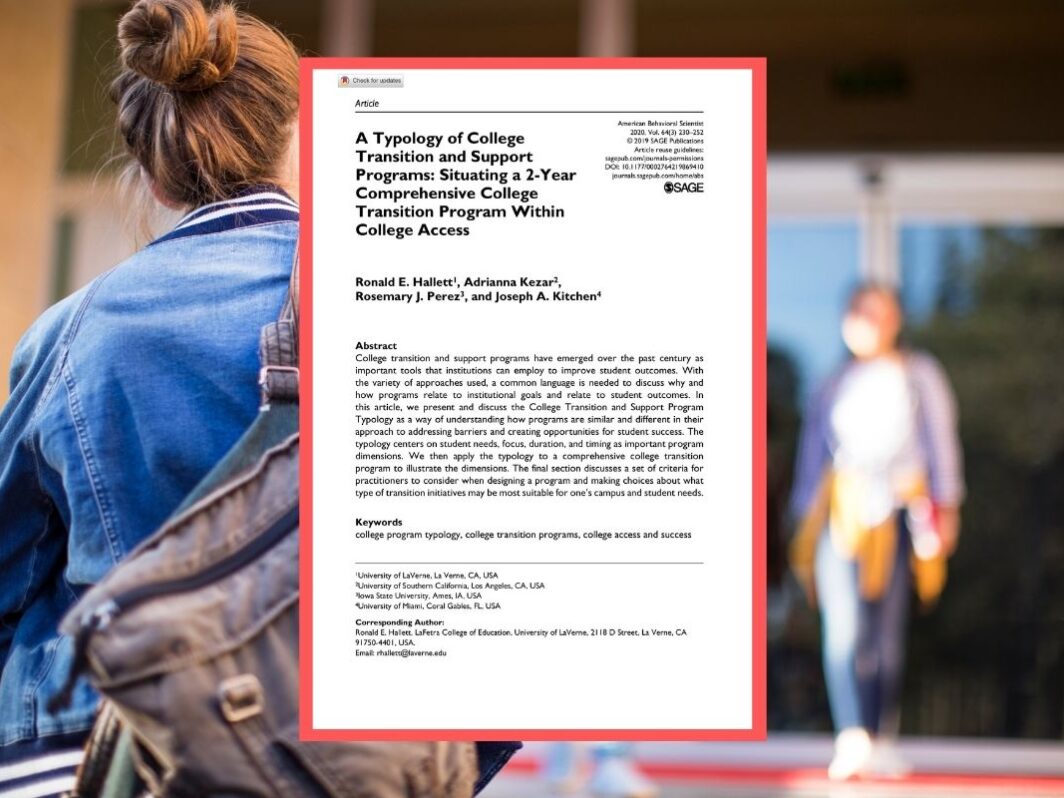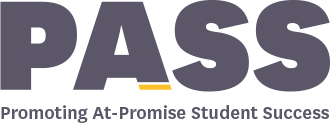College transition and support programs have emerged over the past century as important tools that institutions can employ to improve student outcomes. With the variety of approaches used, a common language is needed to discuss why and how programs relate to institutional goals and relate to student outcomes. A journal article authored by Ronn Hallett, Adrianna Kezar, Rosemary Perez, and Joseph Kitchen presents and discusses the College Transition and Support Program Typology as a way of understanding how programs are similar and different in their approach to addressing barriers and creating opportunities for student success. A Typology of College Transition and Support Programs: Situating a 2-Year Comprehensive College Transition Program Within College Access centers on student needs, focus, duration, and timing as important program dimensions, then applies the typology to a comprehensive college transition program to illustrate the dimensions. The article discusses a set of criteria for practitioners to consider when designing a program and making choices about what type of transition initiatives may be most suitable for one’s campus and student needs. The article, published in American Behavioral Scientist, uses data from the PASS Project, a multi-year mixed-methods research project at the USC Pullias Center for Higher Education dedicated to deepening understandings of student success in postsecondary institutions through the study of the Thompson Scholars Learning Communities (TSLC) program at three University of Nebraska campuses. “The College Transition and Support Program Typology can help educators and policymakers understand key differences among these programs and make decisions about efficiency and efficacy,” notes Adrianna Kezar, Primary Investigator on the PASS Project and Director of the USC Pullias Center for Higher Education. “This can also assist practitioners in identifying which programs might be most suitable for their campus needs.” Read the article in American Behavioral Scientist then learn more about the Pullias Center at pullias.usc.edu and take a closer look at the PASS Project at pass.pullias.usc.edu.

A Typology of College Transition and Support Programs: Situating a 2-Year Comprehensive College Transition Program Within College Access
May 26, 2021

